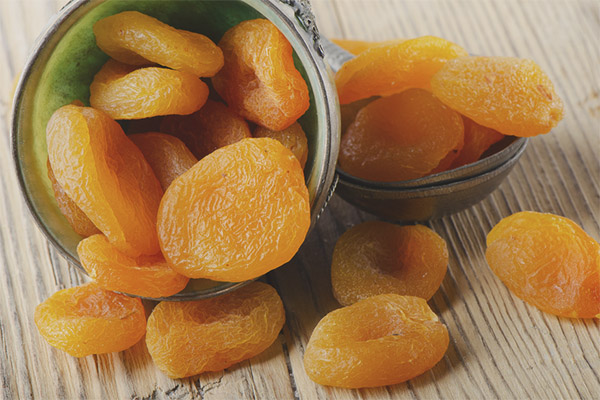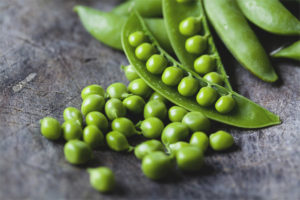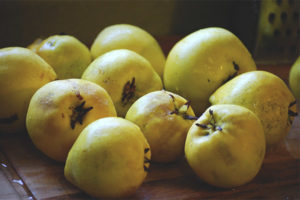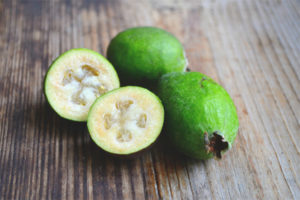The content of the article
For most people, dried apricots are a favorite delicacy. And indeed, this type of dried fruit is healthy and has a pleasant taste. But regarding people with diabetes, experts still have not come to a common opinion. Since dried apricots have a significant sugar content, some professionals have doubts about the usefulness of the product for diabetics.
Another group of doctors, relying on the latest scientific data in this area, believes that dried apricots can be eaten even with type 2 diabetes. The fact is that everything is curled from the glycemic index. If this figure is within the normal range, then dried apricots in small quantities can be added to the diet. The main thing is to follow the measures so that the product brings real health benefits.
The relevance of dried apricots in diabetes
As already noted, dried apricots is one of the varieties of dried fruit. In fact, it is dried apricot. Therefore, all the valuable components of the fresh fruit are stored in it completely. It is this feature of dried apricots that provides the full range of properties that the product possesses. So in dried apricots are salts of potassium and magnesium, and they improve the condition of the vascular walls and have a positive effect on the work of the heart. Many in the dried apricots of iron - an element without which normal blood formation is impossible.
In addition to these components, the dried fruits of apricots contain:
- vitamin complex, including ascorbic acid (vitamin "C");
- organic acids;
- inulin (agent responsible for glucose level);
- carotenes;
- pectin;
- squirrels;
- carbohydrates.
This list of components allows you to judge the high usefulness of dried apricots. For patients with diabetes of both types, this product is a source of essential vitamins.
Important point! The calorie content of dried apricots exceeds the energy value of fresh fruit. It is 250 kcal per 100g, and the glycemic index is 35.
Beneficial features
For patients with high levels of sugar, dried apricots are both beneficial and harmful. But experts still do not advise completely to refuse such a valuable product. Although dried apricots have a high percentage of sugar, with a satisfactory glycemic index, they are extremely useful for diabetics.
A positive effect on the body is expressed in the following properties of dried apricots:
- normalizes hemoglobin level;
- possesses a pronounced antioxidant property, so it cleans the body of toxins well;
- improves the function of the cardiovascular system;
- stimulates the immune system;
- reduces pressure well;
- strengthens the vascular walls and improves their tone;
- relieves from the main manifestations of toxemia - nausea and heartburn;
- possesses good diuretic abilities that helps eliminate edema;
- contributes to the normal process of blood formation.
In addition to the characteristics already listed, it can be added that dried apricots to some extent possess antiseptic abilities. Experts believe that this type of dried fruit can be used as a prophylactic agent for some types of oncology.By the way, this is not a hypothesis, but the statement of scientists already grounded by the results of research.
With proper use of dried apricots, patients with diabetes can ease the course of concomitant underlying disease pathology:
- liver problems;
- kidney disease;
- heart pathologies.
How to use the product
Nutritionists and doctors advise patients with diabetes to eat a fruit mix of dried fruits. The combination of dried apricots with other dried fruits will bring more benefits, and the taste of such a composite dish is much richer. You can add nuts to the dried fruit. Separately, it is necessary to dwell on the permissible norms for diabetes. These options are:
- Daily portion (maximum) for type 1 - 50 g, for 2 - 100 g
- In its pure form, use dried apricots should not be, it is better to add it to other dishes of the diet.
- In order for dried fruits not to lose their beneficial qualities, it is better not to heat them.
- Dried apricots go well with the meat base, so you can safely add it to salads or prepare desserts.
- If there are restrictions in the use of dried apricots, you should eat no more than two apricot slices per day.
Important point! If you eat dried apricots uncontrollably, the sugar can jump sharply. Abuse is also fraught with allergic manifestations.
Contraindications
Despite the obvious advantages of dried apricots, the product has its disadvantages. Therefore, the negative aspects also need to be taken into account when it comes to patients with such a serious diagnosis as diabetes. It is recommended to limit the use of dried apricots for such patients, if, in addition to the main diagnosis, they have:
- intestinal problems;
- digestive disorders;
- peptic ulcer disease;
- pancreatitis (inflammation of the pancreas);
- tendency to hypotension.
It should be carefully used dried apricots in women during lactation.
The harm of the product can only be discussed when the product was processed in violation of the rules or subjected to treatment with chemical agents.
Selection rules
When choosing high-quality dried apricots, you should focus on four main parameters:
- The color of the product should be even without stains and mold.
- Taste of properly dried fruit is pleasant without a hint of bitterness.
- The flesh should have a dense consistency. When pressing on the surface, the pigment should not remain on the hands.
- Size also matters, because I have large parameters of ripe apricots. Then they are juicy, and when dried, dried apricots of good quality are obtained from such berries.
Even in the case when the quality of the product is not in doubt, dried apricots should be soaked in cold water for a third of an hour before use, and then washed.
Video: how to diabetics have dried apricots












To send